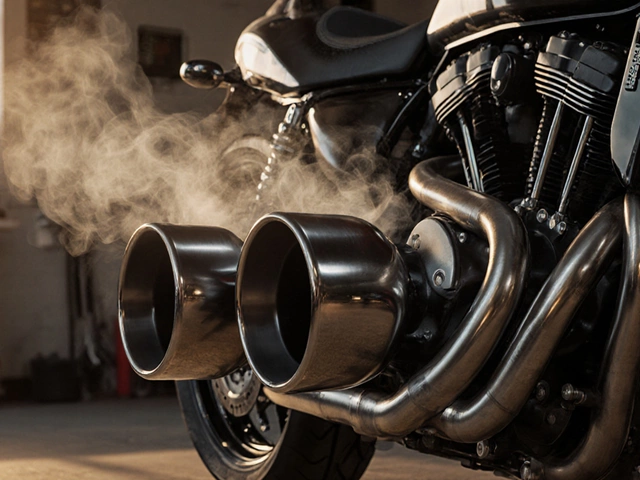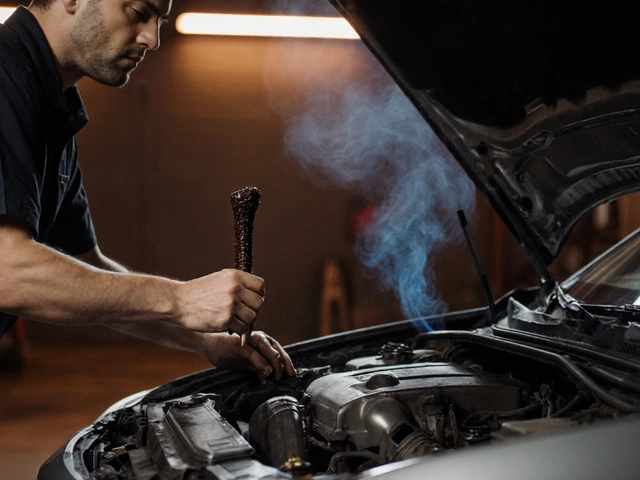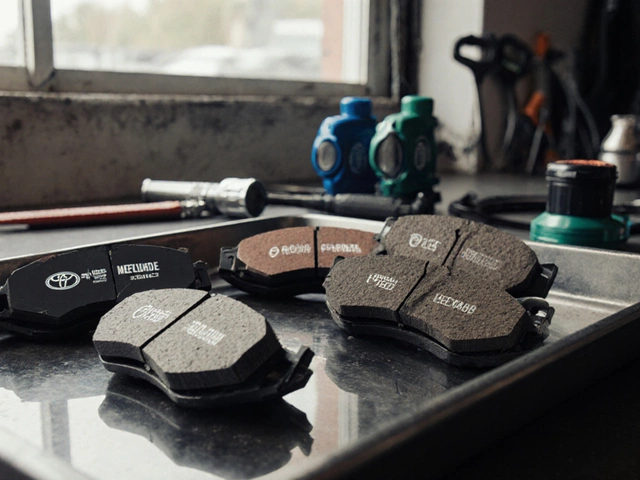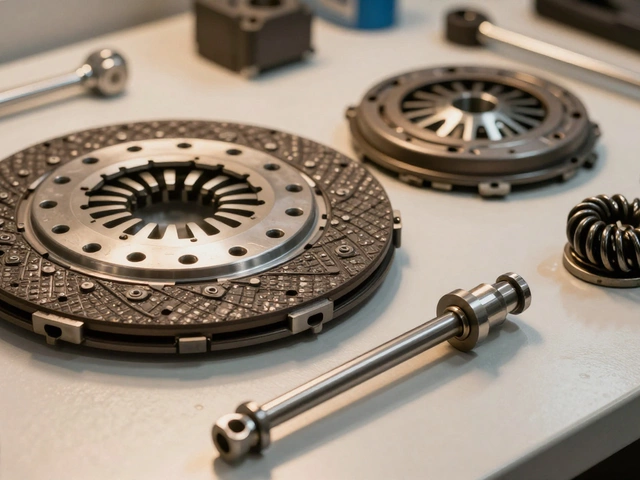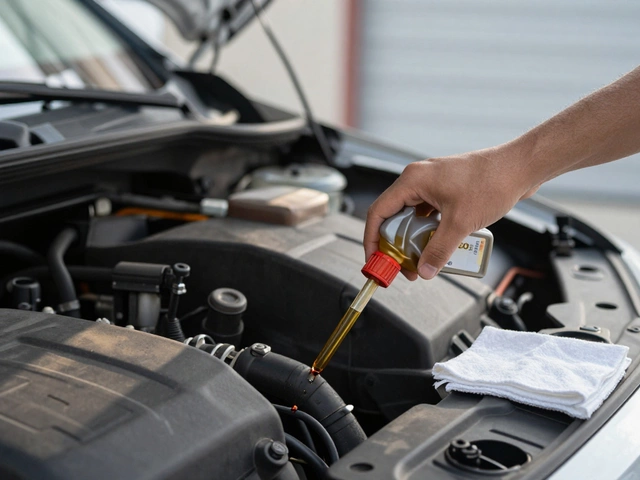
Ever sat in a car that made you feel like you were riding a bull instead of a vehicle? That might be thanks to a weak suspension. A healthy suspension system is crucial for keeping your ride smooth and your handling tight. But if it's not up to par, you're in for a world of bouncing and a lot less control.
First things first, how do you know if your suspension's slacking off? Some telltale signs include rough rides, nose-diving when braking, and uneven tire wear. Funny little clunks and squeaks when you hit a bump could also mean your car's trying to tell you something.
Ignoring these signs? Not a great idea. Weak suspension doesn't just make your ride uncomfortable—it can seriously mess with how your car performs. You might notice cornering feels a bit like dancing on ice, which nobody wants when safety is on the line.
Recognizing Weak Suspension Symptoms
Spotting a weak suspension early can save you from costly repairs and unsafe driving conditions. Let's look at the signs your suspension might be calling for help.
1. Bumpy Rides
If your car feels like it's on a rollercoaster, chances are your suspension is struggling. A properly functioning suspension system should smooth out most road imperfections. When every little bump feels like you just drove over a pothole, it's time for a check-up.
2. Nose Dives When Braking
Have you noticed your car's front end dipping down when you hit the brakes? This nose-diving action is a dead giveaway of suspension troubles. It can affect braking distance and your overall control over the vehicle.
3. Uneven Tire Wear
Uneven tire wear could mean your suspension's not distributing weight evenly across all tires. If one tire's more worn out than the rest, it might be time to look under the car.
4. Strange Sounds
Listening to your car can give you a lot of info. Watch out for unusual sounds like clunks or squeaks when you go over bumps—your suspension's trying to speak up.
5. Leaky Shocks
If you find oily patches on your driveway or garage floor below your car, it might be leaking shocks. Shocks help absorb the impact of road irregularities, and leaks mean they're not working right.
| Symptom | Impact |
|---|---|
| Bumpy Rides | Reduces comfort and control |
| Nose Dives When Braking | Increases stopping distance |
| Uneven Tire Wear | Shortens tire lifespan |
| Strange Sounds | Indicates component wear |
| Leaky Shocks | Reduces shock absorption |
Understanding these signs can help you catch suspension issues early. Don't ignore these hints because a rough ride isn't just uncomfortable—it can lead to bigger, costlier problems down the road.
Impact on Vehicle Performance
A weak suspension might seem like just a comfort issue, but it dives deeper into affecting your vehicle's overall performance. Imagine taking a sharp turn and feeling your car sway like a boat—unsettling, right? A strong suspension keeps your ride stable and responsive, but when it's weak, control and stability can fly right out the window.
One major area of impact is car suspension issues that lead to poor handling. You might notice that your steering feels loose or the car doesn't respond as crisply as it used to. This is because the suspension components aren't doing their job of keeping the wheels on the ground.
Braking Efficiency
An often overlooked effect of a weak suspension is on braking. A failing suspension can cause the car to nose-dive when you hit the brakes, which isn't just uncomfortable—it can also increase your stopping distance. The more your car lunges, the less effective your brakes might be.
Tire Wear
Then there's the issue of tire wear. A compromised suspension can't keep an even pressure on all tires, meaning you'll likely see more wear on some tires than others. This not only means more frequent tire rotations or even replacements but can also lead to alignment issues.
Fuel Efficiency
Okay, so how does weak suspension affect gas mileage? Well, if your car isn't riding smooth and level, it's not cutting through the air as efficiently as it should be, which can mean more trips to the gas station.
To wrap up, don't underestimate the suspension effects on your ride's performance. A little bounce here and there might seem harmless, but it's a red flag that can lead to bigger, costlier issues down the line. Keeping your suspension in check isn't just about comfort—it's about safety and saving money in the long run!

Safety Concerns
Now, let's talk about why you should really care about your car's weak suspension. Ignoring this issue isn't just uncomfortable—it can be downright dangerous. A compromised suspension system can seriously affect your vehicle's stopping power, which is a big deal when you're trying to avoid a collision.
Braking Woes
When your suspension is on the fritz, you're likely to experience extended braking distances. That's because a faulty system can't keep all your tires on the road effectively, leading to less traction. Bottom line: you need more room to stop, which can be a major problem on busy roads.
Handling Hazards
Ever tried taking a sharp turn with unresponsive steering? It’s like playing a game of bumper cars—but you’re on the highway. Weak suspension makes your car tougher to control, especially during cornering and sudden maneuvers. You might find that your car sways more, making it difficult to stay in your lane.
Uneven Wear and Tear
It's not just your braking and handling that suffer. , weak suspension can lead to uneven tire wear. This uneven wear adds up, affecting your car’s grip on the road. And less grip means more slipping and sliding, especially in the rain.
Statistics on Road Incidents
Check out this quick fact: According to some road safety studies, vehicles with compromised suspensions are involved in a higher percentage of road incidents. Making sure yours is up to snuff could literally be a lifesaver.
The crucial takeaway? Don’t mess around when it comes to your car’s suspension. It’s not just about comfort; it’s about keeping you and everyone else on the road safe.
Maintenance Tips
Keeping your car suspension in top shape doesn’t have to be rocket science. It’s all about regular checks and a bit of TLC (Tender Loving Care). It’s way better to catch potential issues early than ending up with a weak suspension when you least expect it.
Regular Inspection
Get into the habit of looking under the hood, or rather, under the car. Keeping an eye on your suspension system can save you headaches—and money—down the road. Check for any wear and tear on parts like the shocks and struts. They're key players in keeping your ride smooth.
“A well-maintained suspension not only ensures comfort but also enhances vehicle stability.” - Auto Expert Magazine
Tire Checks
Your tires are a big indicator of what's happening with your suspension. Uneven tire wear can be a sign of a weak suspension. Make sure to rotate your tires regularly and check that alignment—those little tweaks can make a big difference.
Listen to Your Car
Your car might not speak English, but it sure does communicate. Listen for unusual noises like clunks or squeaks, especially when going over bumps. These sounds often hint at suspension issues.
Stay on Top of Fluid Levels
- Regularly check power steering and suspension fluid levels.
- Look out for leaks around shocks or struts.
- Topping up fluids when needed helps keep parts working smoothly.
If you’re not comfortable doing these checks yourself, don’t sweat it. Take your car to a professional. They can give it a thorough once-over and address any weak spots before they become major problems.
